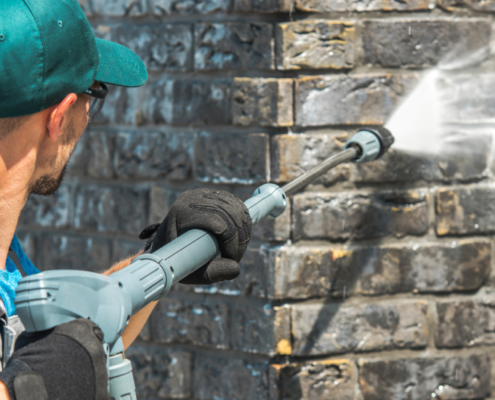How to Prevent Black Ants
Have you seen black ants around your home? You may not know it, but your home can become infested with black ants. These little insects can be seen following trails, nesting, and going into your food and water supplies.
While black ants feed on various types of food, but most are particularly attracted to honeydew, trees, plants, and bugs. If you have fruit trees or flowers in your garden, black ants may become lured into your property as well.
Where Can Black Ants Be Found?
Black ants usually establish a colony inside walls, near bricks or by your home’s doorways. Black ants can also be found near areas that are filled with wood, pavement cracks. You may even find them under your yard debris, piles of wood, stones, or logs that may be rotting.
While black ants may love the outdoors, they may also start to build their colonies inside your house when the weather isn’t that nice. Black ant colonies indoors can usually be found inside cracks, gaps in your walls, wood that is already decaying, stones, or behind facades. They may also stay in your kitchen where there is food, or in your bathroom.
Risks
- While black ants may not pose harmful diseases, they can still contaminate the food inside your home or damage your supplies of food.
- Black ants can also cause damages to your homes overall structure. They can do this by shifting, moving or changing the foundation of your home. This in turn creates uneven patches and holes, moving the soil underneath your home.
Prevention
Black ants will thrive or be lured into suitable or most areas in your property of home. If your home has become infested by black ants, you would need to have the patience. The treatment will depend depending on the location of the colony or nest. While setting up baits will be effective when it comes to managing ants, you will need to be determined. Below are some tips on how you can control and prevent them from damaging your property:
- Clean up and get rid of piles of bricks, lumber or debris inside your home or outside your yard. This is because these can serve as nesting areas for ants. They will tend to create colonies in these areas because they provide them with a good and moist environment to thrive in.
- If you plan on mulching your garden, make sure that you mulch away from your home’s foundation. The ideal distance between your home and mulch is approximately twelve inches.
- Seal their entrance areas. Since ants are small, they can enter tiny cracks in your doorway. When you’ve figured out the entryway of these ants, you can then start to cover them with caulk, glue, silicone or plaster.
- You can also line your doorways or entryways with anti-ant deterrents or substances. These will act as barriers. Some of these may even kill the ants. If you want to use natural deterrents, you can use the following: chalk, pepper, white vinegar, salt, orange or lemons. However, make sure that you are careful in using spicy deterrents. Keep them far from children and pets.
- Stay away from plants that are prone to aphids or insects. This will help avoid luring in black ants in your property.






